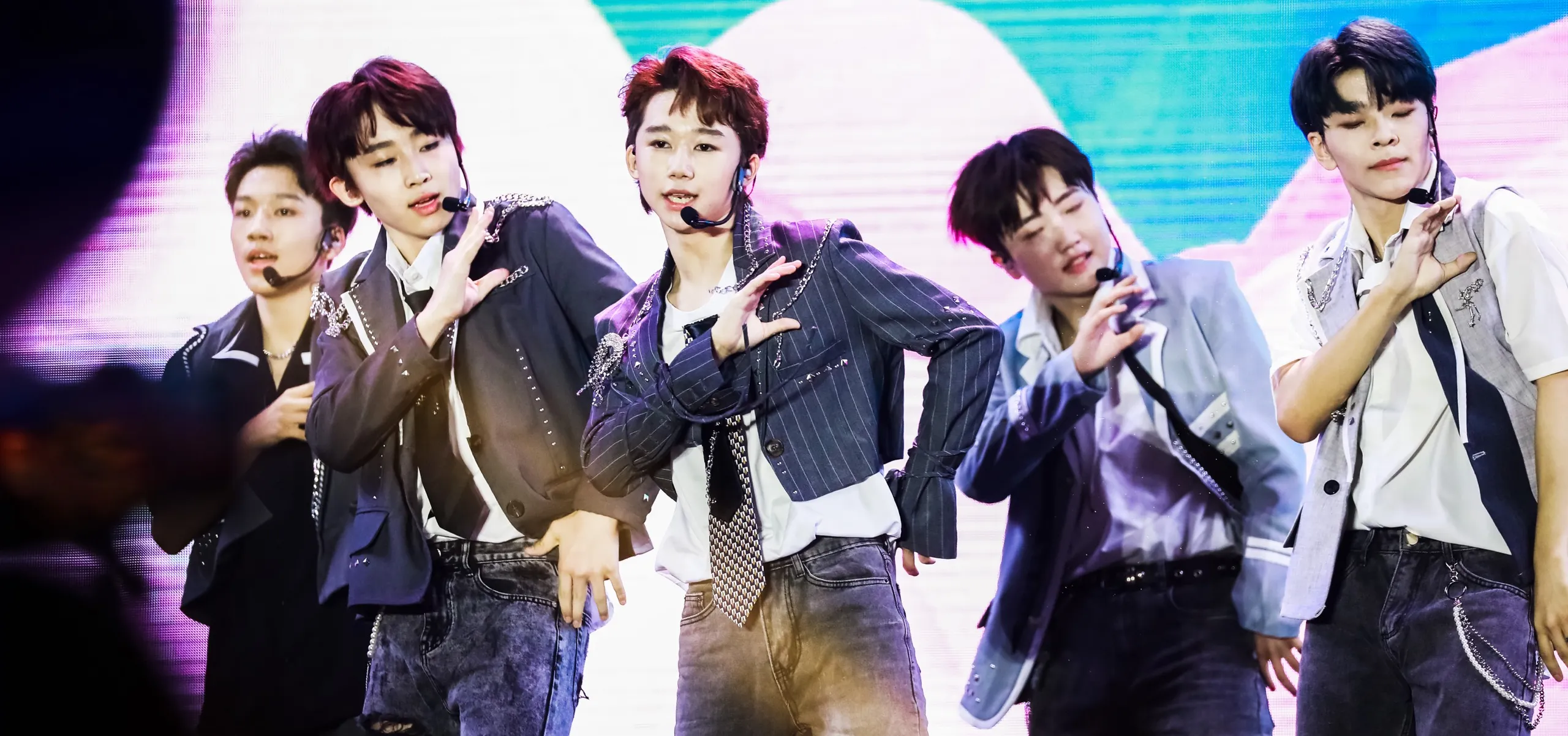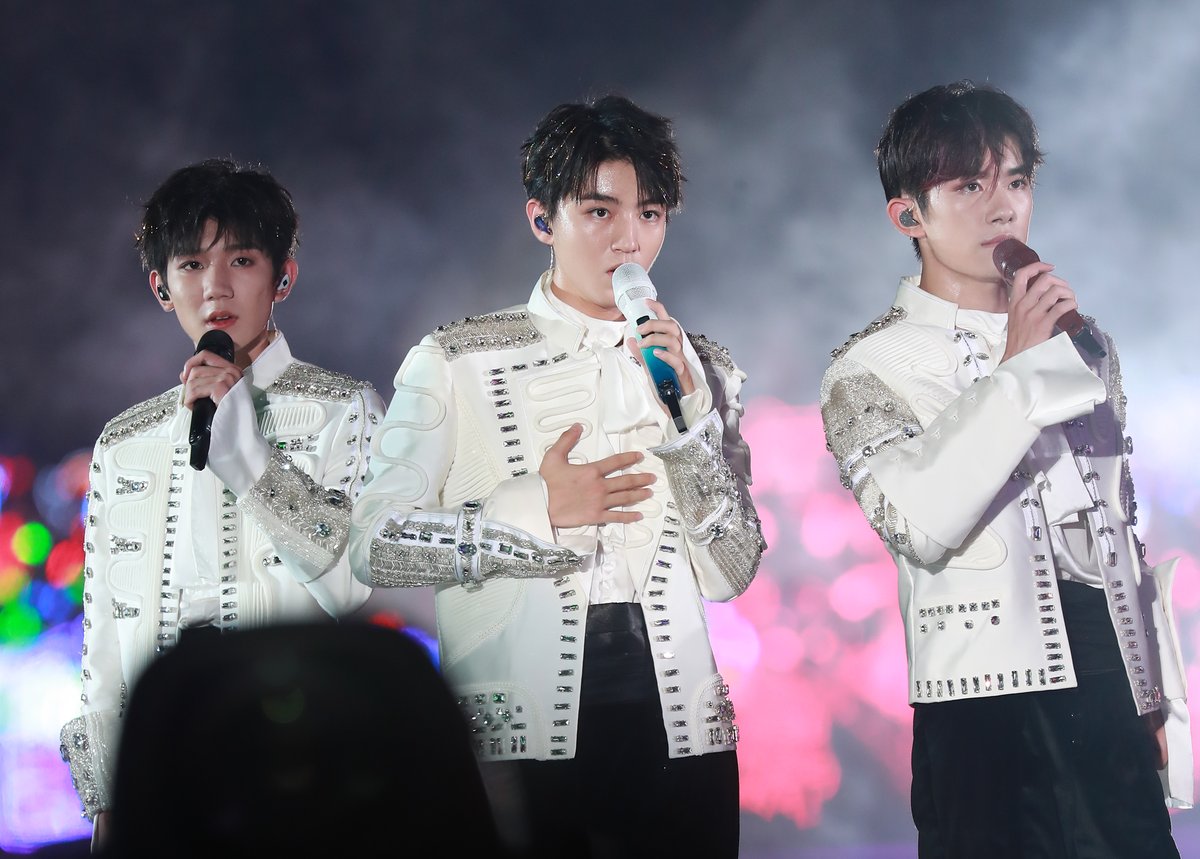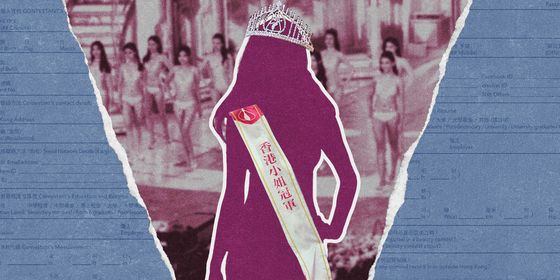Ten years ago, TFBoys spurred a boom in Chinese boy bands. But now fan fatigue, investor apathy, and the pandemic threaten to burst the pop star bubble.
After dividing and conquering the worlds of solo music and acting, China’s most popular boy band might be getting back together. TFBoys, a trio of singing tweens (though now they are in their early 20s) that made its debut back in 2013 and soon won legions of fans across the country, could reunite on the 10th anniversary of their formation next year, according to a post on Weibo by their agent.
Some die-hard followers of the group were moved to tears by the news, while fans of individual band members took it as an opportunity to debate why their chosen TFBoy is better than the other two. Meanwhile, one pessimistic onlooker wondered on Weibo: “Are they re-grouping just so they can announce a final breakup?”
Considered the original modern Chinese boy band success story, TFBoys took the industry by storm in the 2010s and set off a trend of similar “idol groups” that sought to replicate their fame. By 2018, the rise of idol TV shows unleashed a wave of boy band formation and birthed China’s fan culture, with millions following their favorite celebrity’s every move online, defending them against scandal, and even launching attacks on rival stars to further their career.
But despite all the hype, few new boy bands have come close to matching TFBoys’ success, and even some bands originally successful around 2018 have now found themselves washed up and forgotten all too soon. With bad management and a saturated market, China’s boy band bubble may have already burst.
Take, for example, Ixform, a band which debuted this year after their appearance on reality TV show Idol Producer 3, but soon sunk without a trace. Or Boy Story, a joint venture between Korean entertainment company JYP and Tencent’s TE Entertainment, which has failed to gain traction, despite collaborating with big-name artists like Hong Kong rapper Jackson Wang, a former boy band member whose 2019 debut solo album reached number 32 on the US Billboard 200.
This is a world away from 2018, when the first season of Idol Producer was airing. The show, based on the format of the popular Korean reality series Produce 101, saw 100 young idols-in-training from various entertainment companies compete against each other in singing and dancing performances for audience votes. Those with the highest tally at the end of the show made it into the group Nine Percent, which would go on to perform for a limited two-year run.
The show was an immediate success, gaining more than 2.8 billion views and making stars of the nine members, which included actress Fan Bingbing’s younger brother Fan Chengcheng, as well as two former contestants from the Korean version of the show. This program, and the wave that followed, led to 2018 being dubbed “Year Zero” for the Chinese idol market.
Of course, there were boy bands before this. The all-singing, all-dancing pop group is a cross-cultural phenomenon, but many commentators agree that East Asia’s boy band trend began with Johnny Kitagawa. Originally from the US, he moved to Japan in the 1960s and launched Johnnys, a band featuring four thick-browed boys singing and dancing in matching sweaters in their doo-wop style debut. He later established a company that went on to dominate the idol market in Japan, producing household names such as SMAP.
In South Korea, following the Asian financial crisis of 1997, the government made a conscious turn toward cultural production, building the foundations of today’s flourishing K-pop scene.
Mandopop also produced some early all-star boy bands, such as Taiwanese groups Little Tigers in the late 1980s (whose one-time re-grouping for 2010’s CCTV New Year Gala charmed audiences young and old) and F4 in the early 2000s, but the market was dominated by K-pop bands until the mid-2010s. Demand for homegrown talent picked up around that time, likely encouraged by a diplomatic dispute between the Korean and Chinese governments that saw K-pop bands’ livestreams and tours canceled, and TV shows featuring Korean stars put on hold in China, in what was seen as retaliation for a proposed new missile defense system in South Korea.
By 2021, there were countless idol contest TV shows in China and new bands seemed to be formed every week. Media labeled the phenomenon “600 boys in three years,” a reference to the number of contestants featured on nine boy band shows airing at the time.
There have been some successes: Hong Kong’s Mirror has been credited with reviving the Cantopop genre and already boasts over 400 million views on their YouTube channel (though the band is currently reeling from a tragic incident at one of their concerts in July this year, where a giant screen fell on a backing dancer, leaving him with severe injuries).
But in a saturated market, fans have become pickier and harder to impress. When Project C, a boy band JYP, launched earlier this year for the Chinese market, netizens complained that the members looked too “strong” and didn’t fit the soft and docile “Little Fresh Meat” aesthetic boy bands have come to be known for (and which TFBoys essentially birthed). The decline of this look may in part be due to government regulations that have discouraged the promotion of “effeminate men” in the entertainment industry since 2021. Across the board, fans often critiqued bands for having members that are not as attractive as they would like to see.
In addition, many idol groups created through survival programs struggle for long-term success, as the band is only ever a temporary project. Since the shows draw together trainees from different entertainment agencies to compete, the final new group is generally only rewarded with a two-year contract, after which the members return to their original agencies (hopefully, from the agencies’ perspectives, bringing scores of new fans with them).
Even when members of Nine Percent for example, reformed as Next after their original contract, they arguably never achieved the success of the former—Nine Percent boasts 3.5 million followers on Weibo to Next’s 2.1 million—and also angered fans by debuting before Nine Percent had officially disbanded.
Likewise, Unine (a product of Idol Producer 2) has already quietly disbanded after news spread that one of the members was dating (a big “no no” in the industry since idol culture relies in large part on fans’ fantasies of dating their favorite celebs, and because dating is seen as distracting the stars from their music) and because they failed to achieve satisfactory album sales: while Nine Percent earned over 20 million yuan from their first record, it took Unine four albums to achieve the same amount.
For the idols, entering a boy band may not be the end goal, but a means to help them gain recognition and progress their solo careers. Wang Yibo, for example, was a member of Yuehua Entertainment’s boy band Uniq formed in 2014, but he properly rose to fame as an actor starring in the wildly popular 2019 TV series The Untamed. Despite Yuehua Entertainment being one of the biggest players in the idol market, netizens have begun labeling the company’s shares “Wang Yibo stocks,” as the firm is now supposedly reliant on the fame of its biggest star.
Investors, too, have cooled their interest in the industry since the 2018 peak. In an interview with Sina Entertainment in July last year, Liu Jia, founder of music management company Cast Planet Music Group, noted that “around 70 percent of all entertainment businesses have already died,” citing the effects of the pandemic and investment drying up. Meanwhile, the boom of the livestreaming industry means potential stars have an alternative way to interact with audiences more directly, and become famous without the laborious process of a boy band reality TV show or years of training their dancing and singing skills.
Boy bands have also suffered from new industry regulations. Beside banning “effeminate men” and other “abnormal aesthetics” such as tattoos and men wearing earrings, guidelines published by the National Radio and Television Administration in 2021 also ordered the industry to rein in excessive “fan culture,” stop paying “sky high” rates to stars, and ensure celebrities have proper moral values. This was the culmination of long-running attempts by authorities to clean up the entertainment industry, from cracking down on tax evasion like Fan Bingbing’s “yinyang contracts” in 2018, to canceling stars engaged in criminal or “immoral” behavior, which has seen the arrest or cancellation of some of the country’s biggest celebs including pop star Kris Wu (on rape allegations), actress Zheng Shuang (after a surrogacy scandal), and actor Li Yifeng (for soliciting prostitutes). The regulations mean management companies and idols must be more cautious in their marketing and how they drum up fan support.
With increased regulatory scrutiny, extreme competition, and a reality TV show ecosystem that prioritizes short-term success and building solo careers, the promises of China’s “Year Zero” are unlikely to be fulfilled anytime soon. Until then, fans can only hope that rumors of TFBoys’ comeback turn out to be true.
Written by Sinead O’Connor
This story is published as part of TWOC’s collaboration with Asian Pop Weekly.













